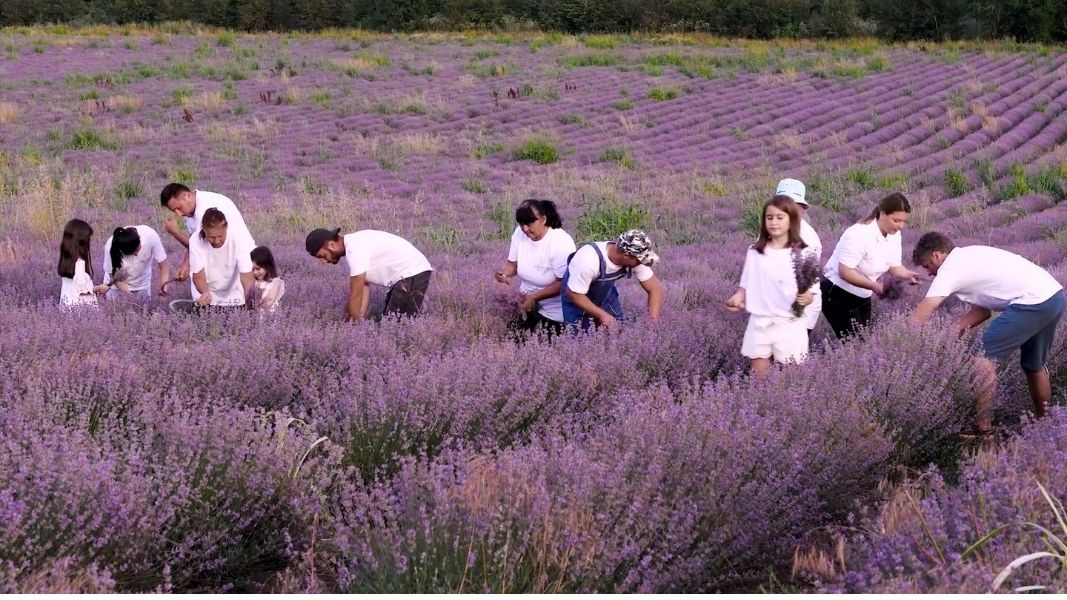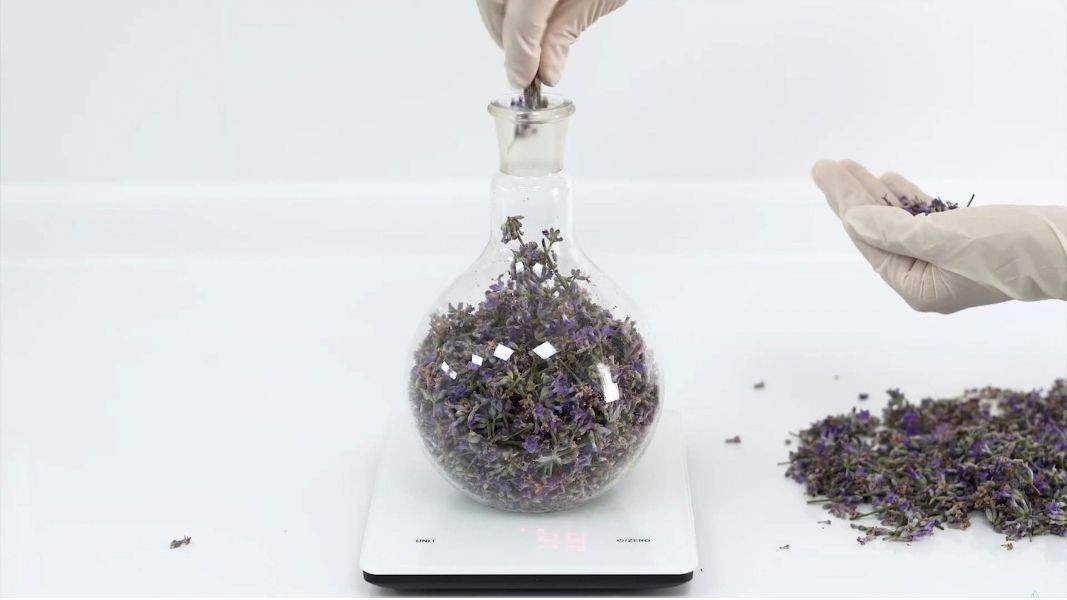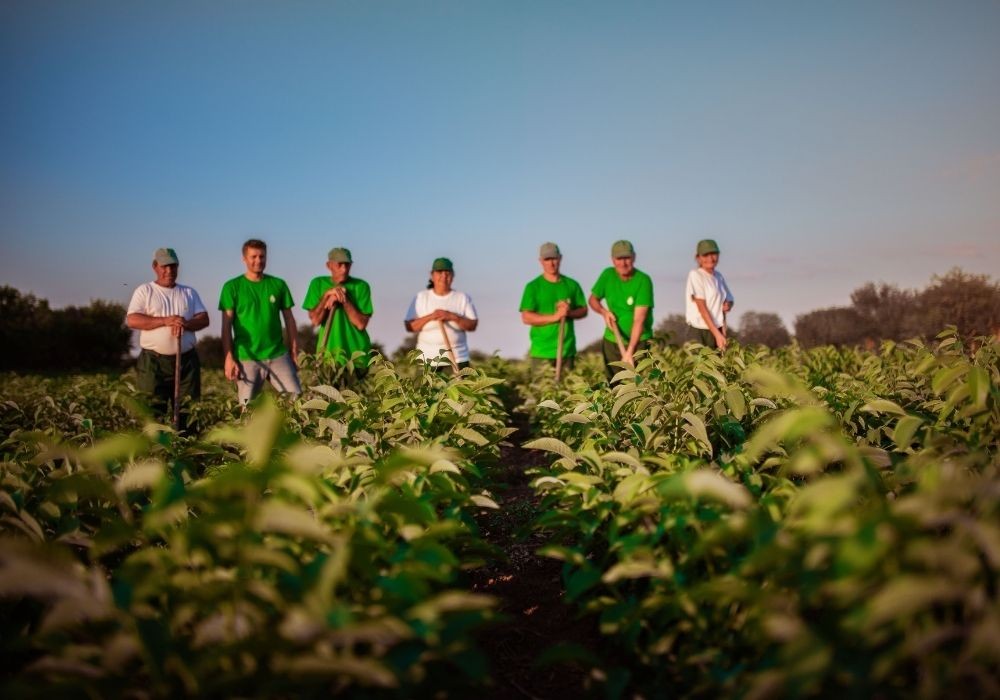He is a German from Hanover, but he lives in the village of Nikolovo near Bulgaria’s Ruse. It is here that he started a family and a business growing herbs and walnut saplings, while his over 20 types of essential oils enjoy great interest both at home and abroad. Jonathan Middendorf arrived in Bulgaria 11 years ago, managed to learn the Bulgarian language, which poses quite a challenge for foreigners, and claims that he now feels more Bulgarian than German. Before settling down in the village of Nikolovo, he worked as a volunteer in South Africa and he also lived in New Zealand.
Bulgaria was not a love at first sight for Jonathan, however, but rather the result of experience and gradual adaptation. He says that it was in December when he first arrived here. His first impressions were the pollution, the rubbish strewn everywhere, the mess … “But when the spring set in, the country came into leaf and the cherries and apricots blossomed, I was amazed by its beauty!”, shares Jonathan. Together with his wife who was born in Nikolovo they started organic farming. And their business went well.
“I have always liked farming, because you are in the fresh air and in the countryside. You can feel your roots and what is really important in life”, says Jonathan. “This cycle of life is always bound to the earth. I feel a different person when I am outside and I touch the soil. I like it that the Bulgarians grow their own tomatoes in their own gardens and are somehow connected to their land and their home country, which is not the case in Germany.”

Today, Jonathan’s produce from Nikolovo is exported throughout Europe, the USA, Canada and is even available in one pharmacy in South Africa. The business mainly depends on online sales. “People abroad generally associate Bulgaria with corruption and crime. That is why our clients were skeptical at first, because Bulgaria is mentioned in the name of our trademark”, recalls Jonathan, adding that over time foreigners gradually began to trust the “Made in BG” products. “Because Bulgarian essential oils are of very high quality, they are extremely natural and healthy and are undoubtedly an alternative to traditional medicine”, explains Jonathan.

But there are problems, too. Besides the bureaucracy and red tape, there is even more: “We are small farmers and as such receive direct payments, but we still encounter difficulties. The system is unfair and messy”, Jonathan Middendorf complains, adding:
“Larger subsidies are allocated by points, such as when you apply for a Canadian visa. The more land you own, the more workers you have hired, the more youexport, the more points you get.”

In this way, bigger producers get the largest subsidies and we are talking about millions of leva. This is in no way fair to the small farmers and puts them on an unequal footing, Jonathan claims, saying that in these difficult times of COVID-19 and the crisis the small producers suffer the most unlike the large ones who have easy access to state aid and subsidies. Despite all this, Jonathan has no intention of giving up on Bulgaria because it is here that he found his vocation and his business is growing. He says that he likes the people in Bulgaria because they are “open, spontaneous and somehow manage to overcome problems easily and quickly, and they always survive.” But he is not fond of the notorious Bulgarian negative, defeatist attitude to life and explains:
“There are people, if not all, who are pessimistic and are convinced that Bulgaria will never get better and we will be far better off if we “run off to England or Germany where everything is OK!” I meet people who do not want to fight for the future of their own country, of their birthplace. They are passive, all they do is grumble and complain about politicians. OK, but when you are not happy about something you should try to change it. When everyone starts thinking about their community and the greater good, things are bound to get better sooner or later”, concludes Jonathan Middendorf.
Photographs: personal archive
English version Milena Kazakova
Photos: courtesy of Jonathan Middendorf"Before I invented the "Trapeze of Death", I was known as Lazar Dobrich, that's the name they used on posters and programmes. The Señor of World Circus Art will always be remembered for the most risky act in the ring - the Trapeze of Death, with a..
In 1920, a young woman with a nine-month-old baby faced a difficult life choice – to stay in Sofia with her husband, to go to her parents in Edirne, or to choose her brother who had settled in Thessaloniki. After two months of..
Nuredin Nuredinaj comes from the historical-geographical region of Gòra in Northeastern Albania, where 90% of the inhabitants identify themselves as Bulgarians (data from the census in 2023). Over 7 thousand Bulgarians live in Albania The..

+359 2 9336 661
